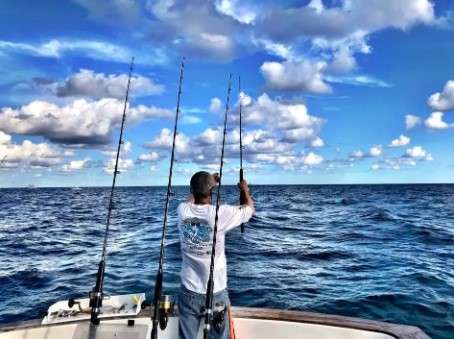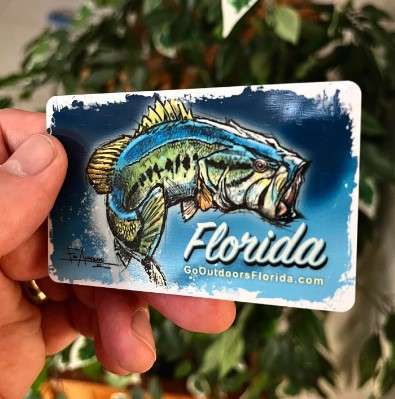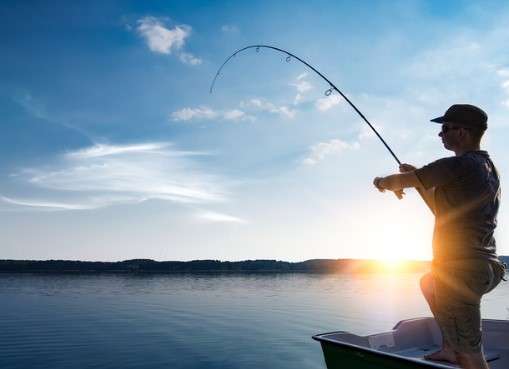Why Do You Need a Fishing License in Florida? Unveiling the Essentials for Anglers
However, before you rush to the nearest shore with your fishing gear in tow, there’s an essential question to address: Why Do You Need a Fishing License in Florida?
In this blog post, I’ll delve into the intricacies of fishing regulations in the Sunshine State, providing you with the ‘what’ and ‘why’ and ‘how’ of obtaining a fishing license.
Why Do You Need a Fishing License in Florida?

Fishing licenses are essential for protecting and managing Florida’s valuable fisheries. The revenue generated from licenses helps fund crucial programs such as:
Read More: How to Get a Pharmacy Tech License in Florida?
1. The Conservation Connection
Fishing licenses aren’t just bureaucratic hurdles but pivotal in preserving Florida’s aquatic ecosystems.
The state ensures fishing activities’ monitoring and sustainable management by requiring anglers to obtain a license.
This safeguards fish populations, maintains ecological balance, and contributes to the overall health of Florida’s waterways.
So, when you purchase a fishing license, you’re not just gaining permission but becoming a responsible steward of the environment.
2. Funding Fisheries and Conservation Efforts
Did you know that the revenue from fishing licenses directly funds conservation projects and fisheries management?
Your license fees return to initiatives that enhance and protect the environment you love to fish in.
From habitat restoration to stocking programs, your contribution through licensing supports the long-term health of Florida’s fisheries.
Obtaining a Fishing License in Florida: A Step-by-Step Guide

Getting a license is easy! Here’s a step-by-step guide to get you started:
See Also: Does It Rain Every Day in Florida in the Summer?
Step 1: Determine the Type of License You Need
Florida offers various fishing license options to cater to different needs. Whether you’re a resident, non-resident, or a senior angler, there’s a license tailored for you.
Visit the Florida Fish and Wildlife Conservation Commission (FWC) website to identify the most suitable license based on your residency status and duration of stay.
Step 2: Choose the Duration
Opt for a license duration that aligns with your fishing plans. Florida offers short-term, annual, and lifetime licenses.
If you’re a frequent visitor, a yearly permit might be the most cost-effective, while a lifetime license ensures you’re ready for spontaneous fishing adventures at any time.
Step 3: Gather Necessary Information
Prepare the required documentation before heading to the licensing platform. This may include proof of residency, social security number, and personal identification.
Check the FWC website for a comprehensive list to avoid hiccups during the application process.
Step 4: Access the FWC Licensing Platform
Save time and apply online through the FWC licensing portal. The online platform is user-friendly, allowing you to complete the application swiftly.
Have your documentation ready for upload, and follow the step-by-step instructions to ensure a seamless process.
Step 5: Receive Your License
Once your application is approved, you’ll receive a digital or physical copy of your fishing license. Keep it with you whenever you’re out angling to avoid legal complications.
Remember, it’s not just a license; it’s your ticket to a fulfilling and responsible fishing experience.
Related Post: Cliff Diving in Florida
My Personal Experience with Getting a Fishing License in Florida

Embarking on my fishing journey in Florida was exciting, but understanding the importance of a fishing license added a layer of responsibility to my angling pursuits.
The process of obtaining a license was surprisingly straightforward. I opted for an annual license, perfect for my regular weekend escapes to the coastal wonders of Florida.
The required documents took time, but the FWC website provided clear guidance. The online application was a breeze, and within days, I had my fishing license in hand.
Knowing that my contribution supports conservation efforts and sustainable fisheries management gave each cast a sense of pride.
Additional Notes:
- Always carry your valid fishing license with you while fishing.
- Check for special regulations or bag limits applicable to your chosen species and location.
- Respect the environment and practice responsible fishing techniques.
Conclusion
Now that you have everything you need to know about fishing licenses in Florida, you’re ready to embark on your next fishing adventure!
Remember to follow all fishing regulations and practice responsible fishing.






